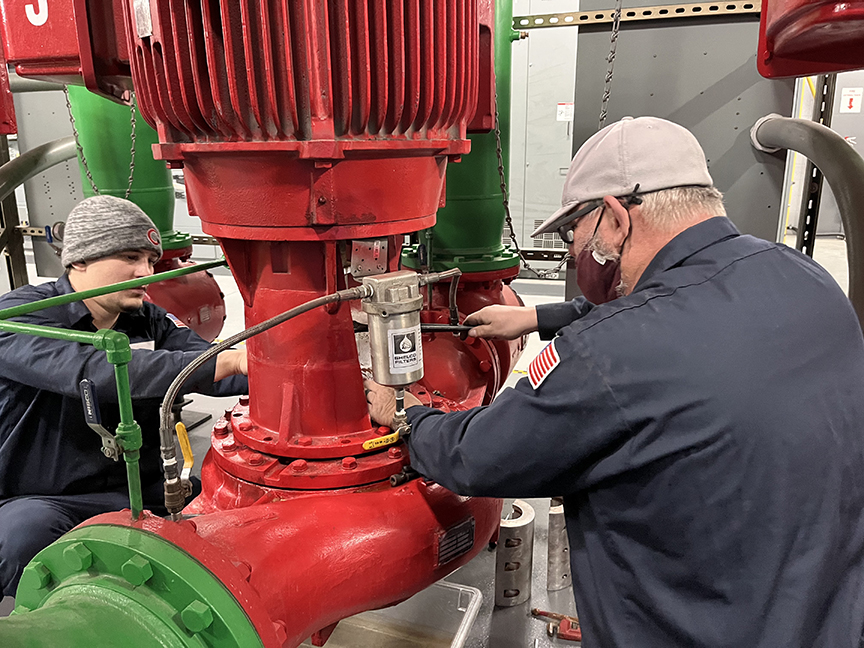Your business and building depend on its commercial HVAC systems, so it makes sense to keep your equipment maintained and in peak condition. A service agreement will not only protect your investment but will save you money in the long term. But before you shop around for a service agreement provider, what are some things to look for? Here are some things to know:
What should a typical maintenance agreement include?
A maintenance agreement should include all the cleaning, calibration, and maintenance required for your commercial and industrial HVAC systems, such as boilers, chillers, process coolers, rooftop AC units, unit heaters, control systems, automation systems, and more. Some of the typical maintenance tasks include:
AC and refrigeration equipment:
- Changing air filters and balancing airflow
- Cleaning evaporators and condensers
- Checking refrigerant levels and pressures
- Cleaning condensate drains
- Testing compressors, start capacitors, and relays
- Measuring current and voltage of motors
- Inspecting electrical systems, safeties, and controls
- Cleaning burners and flue passages
- Checking and adjusting gas pressure
- Analyzing combustion gases
- Calibrating control systems
- Inspecting safeties and lockouts
- Inspecting seals and gaskets
- Measuring water or steam pressures
- Inspecting firebrick and refractory materials
By keeping your HVAC equipment properly maintained, you can ensure it operates more reliably and efficiently.
Why do buildings in extreme climates benefit the most from a service agreement?
For buildings that are located in extreme climates, going without heat or air conditioning is dangerous and expensive. Consider an HVAC service plan if your building houses students, patients, hotel guests, or people vulnerable to extreme temperatures due to health conditions. If and when a chiller or boiler fails, consider what it would cost to move occupants to another location during the repair. Having a reliable service agreement gives you the security of having routine maintenance in place. Also, in case of an emergency, the service provider you are contracted with will know your equipment already. This saves time and money.
What should you look for when selecting an HVAC company?
Choose a trustworthy company with plenty of positive reviews and endorsements.
Look for a company that has been in the business with a long track record.
Ask plenty of questions to verify that the company has the right resources and skilled manufacturer-trained technicians for routine maintenance and repairs. Don’t be afraid to ask why they are the best company for you. Ask how they differ from other service companies?
Look for agreements that are tailored to the specific needs of your HVAC equipment, as well as your facility and schedule.
Find a service provider that is aligned with your goals:
- Reduced energy costs at your facility
- Increased HVAC reliability
- Reduced downtime and losses
- Fewer unnecessary service calls
- Reduced component wear and failure
- Lower repair costs
- A longer service life for your HVAC equipment
- Better indoor air quality
- Greater tenant/occupant comfort
- Higher productivity
Ask if your service provider provides intelligent energy and equipment performance reports.
At the very minimum, a checklist of things that were done at a building is expected. But look for a company that is working just as hard to help you save money in the long run. Does the service contract come complete with reports that tracks energy savings, highlights total system trends and improvement goals?
The goal is to protect your building from unexpected HVAC system repairs and replacements and to promote cost-savings and efficiency over time. Knowing that you’re making an intelligent choice in securing a service agreement with a company that shares your goals will provide you with peace of mind and comfort to you and your occupants.
